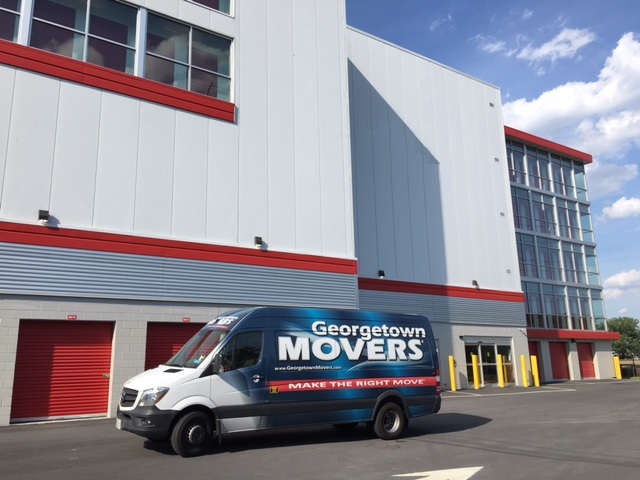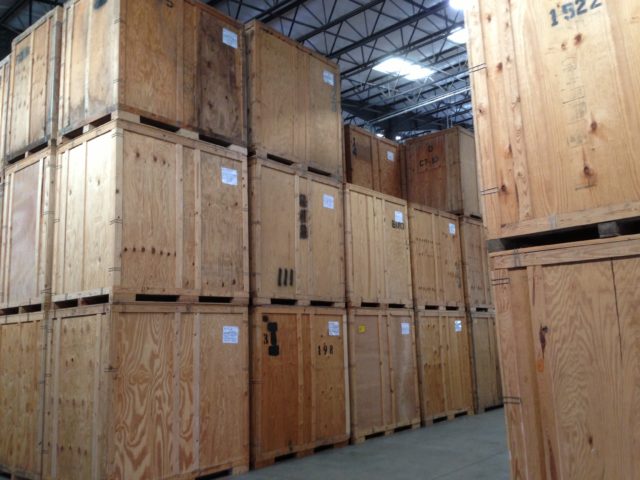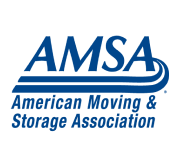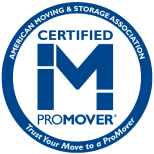Pros and Cons of Self-Storage Units for Long-Term Storage


Self-storage facilities are popular options for long-term storage, offering individuals and businesses a convenient solution for storing their belongings. However, like any storage option, there are both advantages and disadvantages to consider. In this article, we will explore the pros and cons of self-storage facilities for long-term storage.
Who Typically Needs Long-Term Storage Solutions?
Long-term storage offers a practical solution for various individuals and scenarios. Here’s a closer look at who might benefit from these services:
Travelers
Frequent travelers—whether for business or leisure—often require a temporary home for their possessions. Storage units provide that safe space, ensuring everything remains intact during extended trips.
Academic and Research Professionals
Individuals participating in fellowships or long-term research projects may need to relocate temporarily. Storage solutions allow them to keep their belongings secure while they focus on their academic endeavors.
Individuals Downsizing
Transitioning to a smaller living space doesn’t mean you have to give up treasured items immediately. Long-term storage provides an interim solution, allowing homeowners to adjust at their own pace.
Retirees
For many retirees, life involves significant changes like changing residences or traveling more frequently. A storage unit can hold items they wish to keep but don’t need on a daily basis.
Military Personnel
Military service often involves deployments and relocations. Long-term storage provides a secure place for service members to keep their household goods while serving away from home.
Collectors and Hobbyists
Collectors of valuable items—such as vintage cars or antiques—can benefit from climate-controlled storage units that protect their precious collections.
Small Business Owners
Entrepreneurs running businesses from home often face space constraints. Storage solutions help store inventory, promotional materials, and other essentials without the need for more costly office space.
In essence, long-term storage caters to a wide range of needs, offering flexibility and peace of mind for anyone looking to securely protect their possessions over time.
Pros of Self-Storage Facilities
Flexibility
One of the significant advantages of self-storage facilities is the flexibility they provide. I cannot stress enough how convenient it is to have the ability to rent a storage unit based on your specific needs. You can choose the size and type of unit that suits your requirements, giving you the freedom to store items of various sizes, from small personal belongings to large furniture or even vehicles. This flexibility allows you to adapt to different life situations, whether you’re downsizing, moving, or simply in need of extra space.
Convenience
Self-storage facilities offer a level of convenience that is truly valuable. Having the ability to access your storage unit whenever you need to is incredibly liberating. Whether it’s during regular business hours or even 24/7, depending on the facility, the convenience factor cannot be underestimated. It gives you the power to retrieve or add items to your storage unit at your own convenience, making it suitable for long-term storage where occasional access may be required. This accessibility allows you to cherish the sentimental items you’ve stored, reminisce over old memories, or even retrieve essential items during unexpected circumstances.
Security
One of the most comforting aspects of self-storage facilities is the focus on security. These facilities prioritize the safety and protection of your stored belongings. With gated access, surveillance cameras, individual unit locks, and even on-site staff, you can rest assured that your items are stored in a secure environment. This sense of security allows you to have peace of mind, knowing that your precious possessions are safeguarded against theft or damage.
Cost-Effective
In today’s world, where every penny counts, the cost-effectiveness of self-storage facilities cannot be ignored. Compared to other alternatives like renting a larger living or office space, self-storage units are generally more affordable. You only pay for the storage space you need, and there are various pricing options available to suit different budgets. This cost-effectiveness enables you to save money while still having access to a reliable storage solution for your long-term needs.
Cons of Self-Storage Facilities
Space Limitations
While self-storage units offer flexibility, it’s important to acknowledge the space limitations. Depending on the volume of items you have to store, you may need to rent multiple units or opt for a larger unit, which can increase costs. It’s essential to assess your storage needs accurately to ensure you have sufficient space for your belongings. It can be emotional and challenging to decide which items to keep and which to let go of due to space constraints. However, sometimes downsizing and decluttering can be a cathartic process, allowing you to focus on the items that truly hold sentimental value or practical importance.
Lack of Climate Control
Not all self-storage facilities offer climate-controlled units, which can be a significant concern for certain items. If you plan to store items that are sensitive to temperature or humidity fluctuations, such as wooden furniture, electronics, or delicate artwork, the lack of climate control can be a disadvantage. Without climate control, these items may be more susceptible to damage over time. It’s important to assess the value and vulnerability of your items before deciding on a self-storage facility. Consider alternative options if you have particularly valuable or delicate belongings that require precise environmental conditions.
Responsibility for Maintenance
When using a self-storage facility, you bear the responsibility of maintaining your stored items. This includes proper packing, organizing, and ensuring your belongings are protected against potential damage. While some facilities may provide guidance and recommendations, the overall responsibility for maintaining your items falls on you. It can be emotionally challenging to handle this responsibility, especially if you have sentimental items or belongings with significant monetary value. However, the process of organizing and caring for your possessions can also bring a sense of accomplishment and fulfillment.
Limited Assistance
Unlike full-service storage options where professionals handle the entire process, self-storage facilities offer limited assistance. While staff may be available for general inquiries or security purposes, they typically do not provide extensive assistance with packing, loading, or moving your items. If you require additional assistance, you may need to hire professional movers or seek help elsewhere. It can be emotionally overwhelming to handle the physical aspects of moving and storage on your own, but reaching out to friends, family, or professional assistance can alleviate some of the stress.
Packing and Organizing Tips for Long-Term Storage
When planning for long-term storage, it’s crucial to adopt a strategic approach to ensure your items remain in good condition. Here are some effective tips to help:
Opt for Quality Packing Materials
Start with sturdy, durable boxes, ideally in similar sizes for stacking convenience. Secure fragile items with bubble wrap, packing peanuts, or foam sheets. Use heavy-duty tape to seal boxes, and consider moisture-resistant plastic bins to guard against pests and dampness.
Break Down Large Furniture
To save space and minimize the risk of damage, disassemble furniture like beds, tables, and shelves. Keep all screws and bolts in clearly labeled bags, secured to the corresponding pieces.
Handle Fragile Items with Care
Individually cushion glassware, electronics, and other delicate items. Fill voids in boxes with packing materials to prevent contents from shifting during transport.
Ensure Adequate Airflow
Avoid trapping humidity by opting for breathable covers over plastic ones, especially on items like mattresses. Leave space around larger pieces for better air circulation and to minimize mold risk.
Guard Against Moisture
Use desiccants like silica gel packs for electronics or metal items to absorb moisture. Elevate items on shelves to avoid potential water damage.
Maintain Accessibility
Design your storage layout with a clear path, allowing easy access to frequently needed items. Position these at the front, with infrequently accessed items stored further back.
Stack Smartly
Position heavier boxes on the bottom and lighter ones on top to prevent crushing. Avoid overly high stacks to reduce the risk of them falling over.
Maximize Storage Space
Exploit every available inch by placing smaller items inside larger furniture or appliances. Stand mattresses and mirrors vertically to conserve floor space.
Conceal Valuables
Store precious items towards the back of the unit to keep them out of view and ensure your insurance policy covers these valuables.
Tip: Regularly visit your storage unit or have someone check on it to identify and resolve issues like moisture or pest infestations early on. This proactive approach will help maintain the integrity of your stored items over time.
Conclusion
Choosing the Right Storage Option
When considering long-term storage, self-storage facilities offer flexibility, convenience, security, and cost-effectiveness. However, it’s important to consider the space limitations, lack of climate control, responsibility for maintenance, and limited assistance that come with self-storage. Evaluate your storage needs, budget, and preferences to determine if self-storage facilities are the right option for you. It’s natural to have mixed emotions when deciding on a storage solution, as your belongings hold sentimental value and personal connections. Take the time to reflect on your needs, consider the pros and cons, and make a choice that aligns with your priorities.
Weighing the Pros and Cons
By weighing the pros and cons, you can make an informed decision regarding long-term storage. Consider factors such as the nature of your items, your budget, the level of access you require, and the level of responsibility you’re willing to take on. Don’t hesitate to explore other storage options, such as full-service storage or specialized storage facilities, to find the best fit for your specific needs. Remember that your belongings carry memories and emotions, and choosing the right storage solution will help preserve those connections while giving you peace of mind.
Georgetown Moving is a Full-Service Storage Company
Storage with Georgetown is easy. Here’s how it works:










